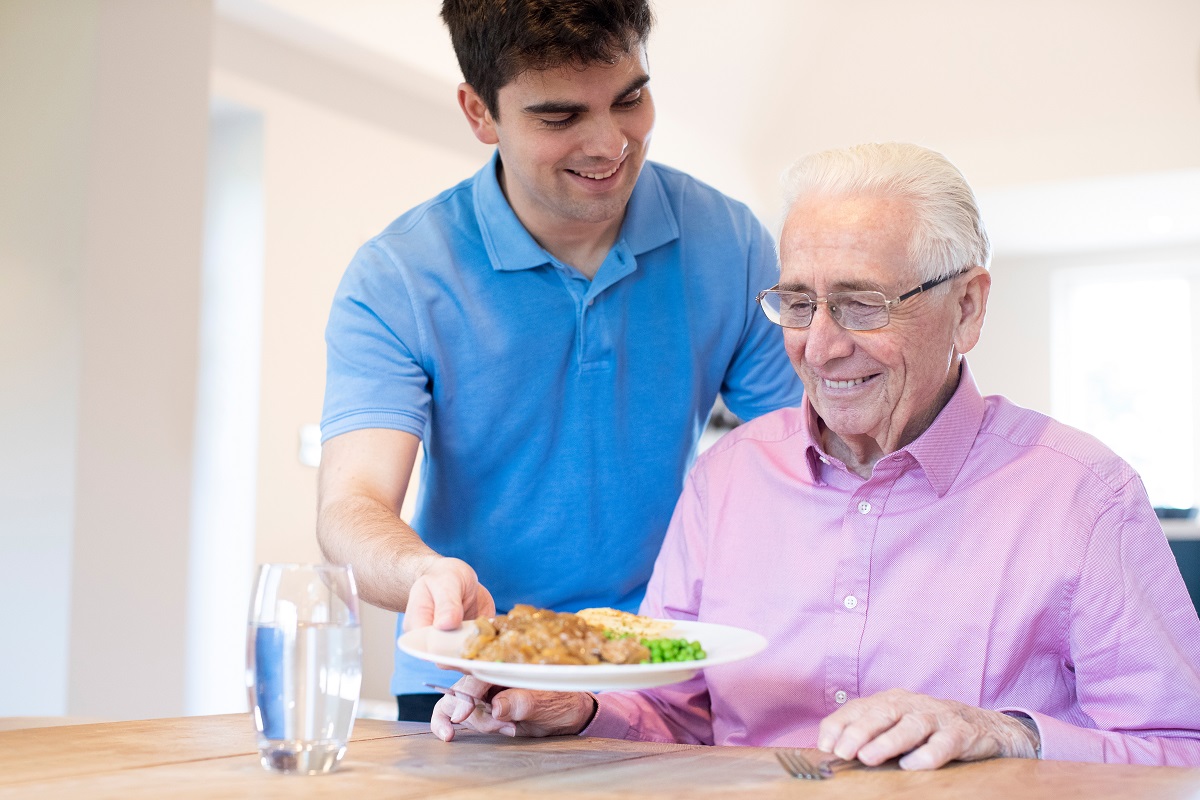Staying active when you have dementia
Are you finding it increasingly difficult to persuade a loved one to take any exercise? Find out how to encourage them to sit less and move more.
If the person you’re caring for spends hours every day sitting in their favourite armchair you might be worried that their sedentary lifestyle isn’t doing them any favours – and you’re probably right. Here’s a few ways to increase their physical activity.
Why bother?
Some people with dementia seem perfectly content to sit around all day, but whilst some relaxation is always a good idea, so is some physical activity. It won’t only improve their physical health (take a look at the benefits below) it will improve their mental health too.
Benefits of moving more
1. It’s good for your heart and can reduce high blood pressure.
2. It keeps your bones and muscles strong so you can stay mobile and independent.
3. It improves sleep.
4. It can reduce the risk of falls by improving your strength and balance.
5. It improves confidence and reduces loneliness especially if it involves mixing with other people.
6. It might ease agitation, anxiety restlessness and wandering.
Don’t worry if your loved one is reluctant to do very much. Try to work out why. Maybe they’ve lost their confidence or are afraid they’ll fall? Keep reassuring them that they’re safe with you and if necessary try using a walking stick or rollator to provide extra comfort and safety. If you’re going outdoors make sure they’re dressed properly so they stay warm and comfortable.
Three facts worth knowing
1. Tai Chi is often regarded as the perfect exercise for elderly people. Research has shown that older people who regularly perform the traditional Chinese art, were less likely to suffer high blood pressure and were physically stronger.
2. Gentle daily exercise – 30 minutes, six days a week – was found by researchers to be as good for elderly men as stopping smoking.
3. Regular exercise can boost the size of parts of the brain that shrink with age. If you’re worried about your own memory, you might be able to reduce your risk of developing dementia by taking a brisk 30-40 minute walk three times a week.
Golden rules of dementia exercise
Keep it simple
Look at your daily care plan. Does it include something physical every day? It could be as simple as taking a 15 minute walk, or doing some housework or light gardening.
Make it fun
What did they used to enjoy doing? Whether it was dancing, swimming or walking, you might find it easier than you thought to take it up again. For example, you could make the most of afternoon tea dances in your area, they’re not only sociable and fun but will increase strength and flexibility. Supervised swimming can also be a great work out and stress buster. So keep an open mind!
What if …
You’re worried about money?
Physical activity doesn’t have to cost very much. A decent pair of shoes or trainers is all you need to go for a walk, and many local authorities run low-cost (or free) exercise and swimming sessions for older people. If cost is still an issue however, you could consider making any physical activity expense, part of your personal budget.
They’re no longer mobile?
Don’t let that put you off. If the person you’re caring for is wheelchair bound, or too frail to stand for very long, seated exercise programmes are widely available – from armchair aerobics on DVD to seated dancing classes in your local community centre. Stay positive – you might be surprised by how much is available.
Good to know
A community nurse, occupational therapist, physiotherapist or your GP can give you more advice about what might be available in your area.
SHARE
Explore more




